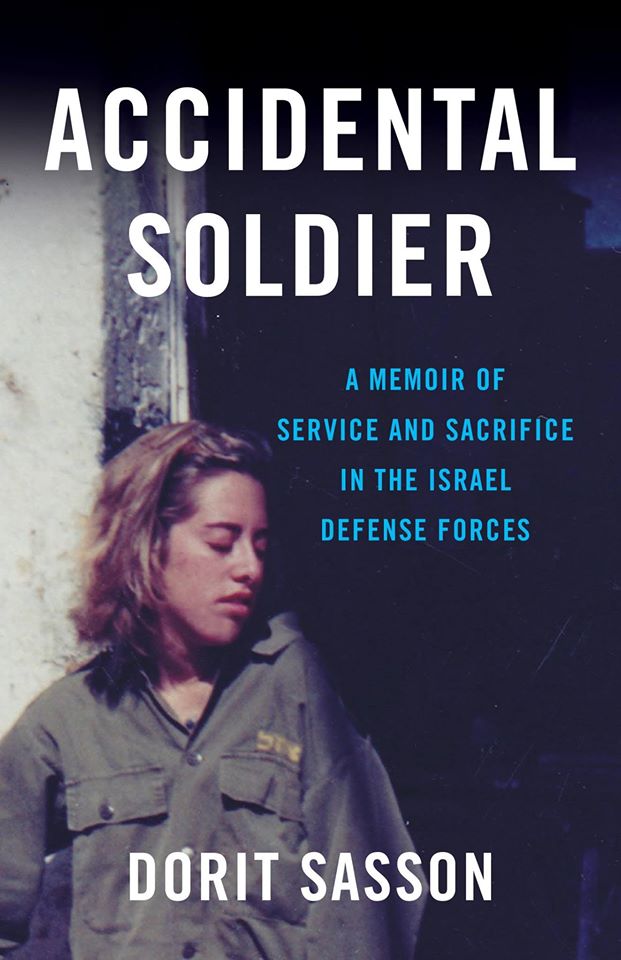They say that you develop courage when you’re thrown into new situations and for the parents among us, our resilience is constantly tested. Especially when we’re sending our kids off to summer camp.
I’ve always been a worrier. And a catastrophizer. If you’ve gotten to know me from my memoir Accidental Soldier: A Memoir of Service and Sacrifice in the Israel Defense Forces, which just released this past week, you may have noticed how hard my character had to work to be resilient while serving in the Israel Defense Forces.
I had already learned to let go two years ago when my son left for just a week long sleepaway camp for the first time. He held in his emotions and justified his homesickness by being sick. We honestly thought sleepaway camp was no longer in the cards for us. But my son continued to grow – emotionally, physically and socially — and I knew I’d have to accept the fact that I’d have to let him go.
I could tell he was itching for camp, but held back. “No, Mommy, it’s too expensive.” Or, “No Mommy, I’ll probably get really homesick if I go for a month.”
So we put off the sleepaway camp experience. Too hard on the boy. Too hard on the mommy. Easier to not deal with pain, right?
Lesson #1: Subverting the growth interferes with the Courage Mindset.
But this tactic can only get you so far. For the past two years, we settled for a mediocre camp experience that was conveniently located. He was already outgrowing it.
The answer to a more enriching Jewish experience would be at Camp Young Judea Midwest.
The Day for Activating Courage Came
The plan was to chaperone a small group of four boys on the plane. My son had only met them at a weekend Shabbaton gathering. He would be the only kid from his school to go for this session.
A big part of me wanted to protect my nurtured son. So i volunteered to chaperone which would grant me my “right to protect.”
There was just one problem.
Catastrophizing and courage don’t mix well.
I’d worked my way to a frenzy after the Orlando attacks. I even had a nightmare of a terrorist attack before the Orlando news that paralyzed me. And from that moment, I couldn’t get out of the emotional prison I’d created for myself — similar to that in the memoir Accidental Soldier.
Lesson #2: Accepting You’re Not in Control Changes the Way You See Your Ability to Be Courageous
I’d arrived at the airport with plenty of time.
The other three campers were veterans of Camp Young Judea.
Once we were settled, I immediately saw how comfortable my son felt with these three friends — two whom he already met. I thought of the back and forth flying, the rush and hassle. And then I had another thought. What if I didn’t chaperone the group?
What if I allowed all four of them to board the plane by themselves to meet the assistant director at the gate.
After all, it was a no-brainer.
They would be safe. Including my son. They really didn’t need me. They would be fine. They were meeting the director at the gate. Chaperoning would bring only peace of mind to myself.
I immediately got flashbacks when I just picked myself up and left my mom and New York City to serve in the Israel Defense Forces. Months before that historical moment, I experienced the emotional highs of learning to tap into my higher power when Dad told me I’d turn out to be like my mother if I stayed in New York City. I’d catastrophized enough now about my son. I didn’t want History to repeat itself.
So I called the director and asked her if it would be a problem if I didn’t chaperone. When she heard my reasoning, she backed up my decision.
They boarded.
My son forgot his pillow. I ran after him and the ground flight crew ran after me. (My mother ran after me with an itchy green sweater to wear on the plane bound for Israel in 1990.)
 The doors were closed. The plane separated.
The doors were closed. The plane separated.
And that’s when I fully realized what I had just done. I let him go. I trusted that he would be safe with his new buddies.
When the plane had fully separated and started to coast, I started waving, “Goodbye, Ivry! Good-bye!”
That’s when I lost it.
I cried. Heavy sobs and all.
The mothers on either side of me held me for 30 seconds. They too had experienced “the letting go” part deeply enough for words.
There was no turning back. He was gone. And on that plane.
Minutes later I Facebooked this:
I cried. I just lost it when I put my son on that plane to camp. This mama bird just did one of the bravest acts ever.
Lesson #3: Once you decide to let go, the Universe will start taking care of you
Of course, I left the airport feeling extremely empty.
I cam home to an empty home, and wanted to cry.
But within a few hours, my son called me to tell me they landed and they were being treated to a hearty breakfast of bagels, lox and cream cheese. The director and assistant director all texted and called with updates and news. Later that day, I got pictures of my now relieved and happy son with his new bunk and at dinner.
And I felt immensely supported knowing he was supported too.
A Review of Accidental Soldier: A Memoir of Service and Sacrifice in the Israel Defense Forces!
 Here’s what one reader just posted on Amazon:
Here’s what one reader just posted on Amazon:
Have you ever dreamt of walking away from the life you live so that you could explore something totally different? Something that would challenge you from the first moment? That would take you places you’ve never been before.
In this coming of age tale, Dorit Sasson does exactly that. Frustrated with her life as an American college student, feeling empty inside and craving relevance, the author of this about-to-be-released memoir emigrates to Israel and joins the Israel Defense Force, i.e., the military.
Initially, Dorit finds herself frightened by just about everything, hesitant to interact with her fellow soldiers, tentative about the smallest decision. Through her military service, she finds herself. I won’t tell you exactly what she finds, but know that as you watch Dorit grow, you’ll perhaps grow a little yourself.




Connect with Dorit